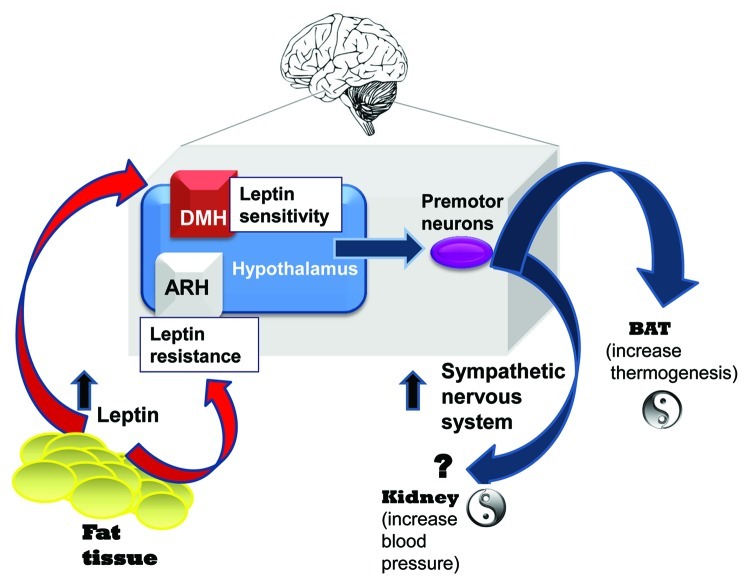Figure 1. Potential “yin-yang” effect of hyperleptinemia on thermogenesis and blood pressure. As humans become obese, leptin levels increase due to adipose tissue mass accumulation. However, this hyperleptinemia fails to cause weight loss because resistance develops, restricting leptin’s ability to produce anorectic actions. Several studies demonstrate that neurons in the ARH become resistant to leptin. Our published data provides strong evidence that leptin retains the ability to activate leptin receptor-expressing neurons in the DMH and increase SNA in obese mice. These results raise the possibility that the increased sympathetic outflow in obesity occurs to tissues other than just BAT, such as the kidney involved in the control of blood pressure. Selective leptin resistance could be a crucial mechanism linking adiposity and elevated sympathetic outflow.

An official website of the United States government
Here's how you know
Official websites use .gov
A
.gov website belongs to an official
government organization in the United States.
Secure .gov websites use HTTPS
A lock (
) or https:// means you've safely
connected to the .gov website. Share sensitive
information only on official, secure websites.
